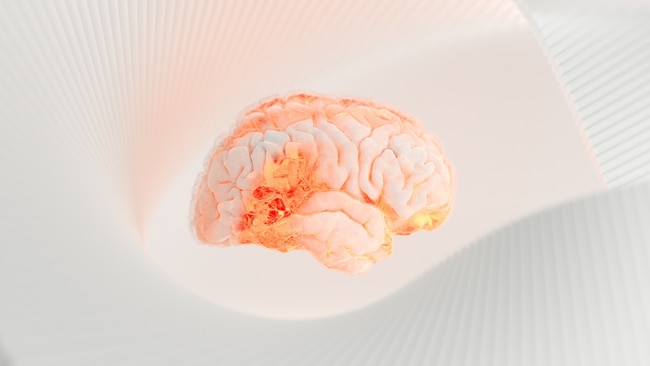New research finds women are twice as likely to develop Alzheimer’s disease
Hormonal changes are the likely determining factor

Dementia
Don't miss out on the headlines from Dementia. Followed categories will be added to My News.
Science says women are more likely to develop Alzheimer’s than men, and the predominant factor is hormonal changes. What can women do to protect their brain longevity?
It’s long been known that women are more susceptible to developing dementia than men, but why?
Recent studies confirmed that women are two times more likely to develop Alzheimer’s disease (the most common form of dementia) later in life than men, and hormonal changes are the likely determining factor.
Evidence obtained from a study over five years (2006-2001) suggests that menopause and other hormonal factors are the primary reason to the staggering statistics.
Like what you see? Sign up to our bodyandsoul.com.au newsletter for more stories like this.
Female hormonal health factors
A cross-sectional study published by JAMA Neurology this month analysed 292 cognitively healthy men and women (with an average age of 67) enrolled in the Wisconsin Registry for Alzheimer’s Prevention to determine the pre-eminent risk factors.
Researchers concluded that the presence of Amyloid β protein (a biomarker for Alzheimer’s disease) was generally more elevated in female participants. Of these participants, those who used hormone therapy and entered menopause at an earlier age were significantly more likely to have higher regional tau PET (another biomarker for Alzheimer's disease).
The reason for the rising presence of these biomarkers is a result of plummeting reproductive hormones such as estrogen.
Lisa Mosconi, a neuroscientist and associate director of the Alzheimer’s Prevention Clinic at Weill Cornell Medical College previously explained this theory, stating that female reproductive hormones are protective agents to brain health.
“In women who are going through menopause, the brain starts showing reductions in brain energy levels, which correlates with the formation of amyloid plaques, or Alzheimer's plaques, in women's brains," she tells the mindbodygreen podcast.
She calls female hormones “superpowers” for brain health, warding off potential medical risks. When these superpowers are depleted during menopause, the female brain becomes vulnerable, and easily penetrable by the Alzheimer’s plaques.
She explains that for men this is biologically obverse, where women go through a period of hormonal loss, male testosterone levels stay predominately stable throughout their entire lifetime.
As such, Mosconi says "Menopause seems to be the turning point for these medical risks to become potential medical issues".

Is there an Alzheimer’s prevention plan for women?
While the study suggests that hormone therapy can be a productive neuroprotective action against Alzheimer's disease, the study by JAMA Neurology states that therapy needs to be timed correctly in order to be effective.
According to the study, women who adopted hormone therapy five or more years post menopause were associated with higher levels of Alzheimer’s biomarkers. As such, hormonal therapy is most responsive shortly after menopause has taken place.
Mosconi also says that following the Mediterranean diet is an everyday preventative measure that women can adopt. The diet prompts regular consumption of fish which is high in omega-3 fatty acids, a product that has been proven to be crucial for brain health.

Other ways to promote brain longevity
- Work with an endocrinologist to support healthy hormone levels
- Practice daily habits that are good for brain health (e.g. physical activity, regular sleep, reading)
- See a neurologist to check for any signs of cognitive decline
- Find out if you’re perimenopausal or post-menopausal and look into a hormonal therapy plan
Mosconi says that understanding your hormonal cycle as a woman is one of the best ways to get on top of dementia risks early.
“For me, it's really helpful if I can see the risks right now, when you're 45 or 50, so we can get a strong baseline and put you on an Alzheimer's prevention plan."
Originally published as New research finds women are twice as likely to develop Alzheimer’s disease


